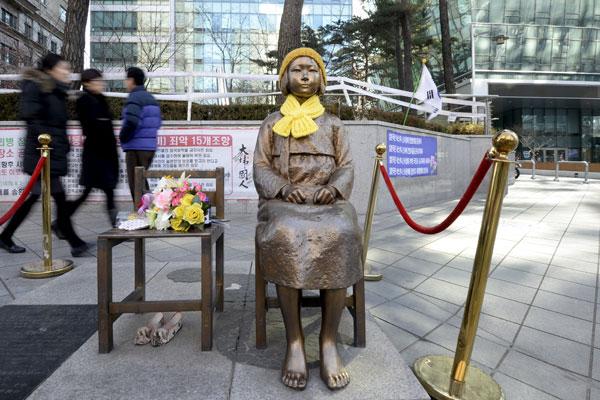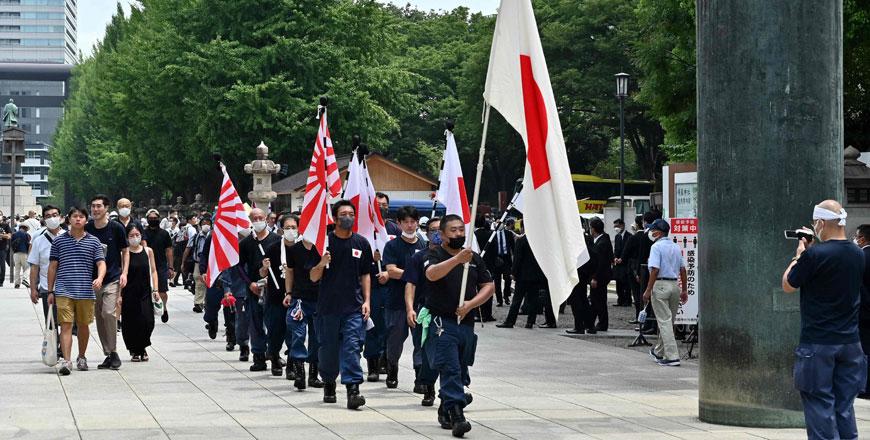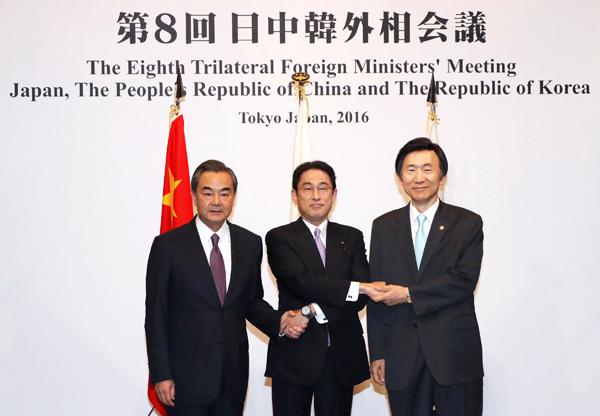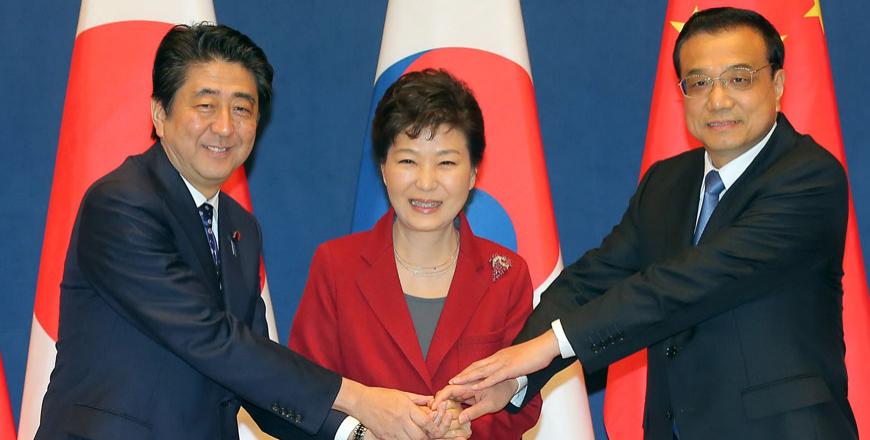You are here
South Korea, Japan strike deal on ‘comfort women’
By AFP - Dec 28,2015 - Last updated at Dec 28,2015

A statue of a girl that represents the sexual victims by the Japanese military is seen in front of Japanese embassy in Seoul, South Korea, on Monday (Reuters photo)
SEOUL — South Korea and Japan reached agreement Monday on their dispute over wartime sex slaves that has soured relations for decades, as Tokyo's leader hailed a "new era" in ties with Seoul.
Japan offered a "heartfelt apology" and a one-billion yen ($8.3 million) payment to Korean women forced into Japanese military brothels during World War II.
Now the two countries, both close US allies, "will welcome a new era", Japanese Prime Minister Shinzo Abe told reporters in Tokyo after speaking by phone with South Korean President Park Geun-hye.
The fate of the 46 surviving South Korean "comfort women" is a hugely emotional issue in South Korea, and a source of much of the distrust that has marred relations with its former colonial ruler Japan for decades.
The deal would be "final and irreversible" if Japan fulfils its responsibilities, South Korean Foreign Minister Yun Byung-se said after talks in Seoul with his Japanese counterpart Fumio Kishida.
Kishida said the issue was "one that deeply hurt the women's honour and dignity with the involvement of the [Japanese] military at the time, and from this viewpoint the Japanese government keenly feels its responsibility".
Abe, he said, extends "his feeling of heartfelt apology and regret to all of those who as comfort women have suffered great pain, both mentally and physically, that is difficult to heal".
"I think the agreement we reached is historic and is a ground-breaking achievement," Kishida said.
The deal, he said, "will not only benefit our country but also largely contribute to the region's peace and stability".
As part of the agreement Seoul will try to relocate a statue symbolising comfort women which currently stands in front of the Japanese embassy through consultations with relevant NGOs, Yun said.
He said Seoul would also refrain from bringing up the comfort women issue again in international forums such as the United Nations.
"I am very pleased to declare the successful conclusion of the difficult negotiations before the year is out, the 50th anniversary of diplomatic ties," Yun said.
Up to 200,000 women, many of them Korean, are estimated to have been sexually enslaved by Japan during World War II.
Japan has long maintained that the dispute was settled in a 1965 agreement which saw Tokyo establish diplomatic ties and make a payment of $800 million in grants or loans to Korea, which it ruled from 1910-1945.
Kishida said Monday the one-billion-won payment was not compensation but a project to resore the women's dignity.
South Korea has said the 1965 treaty did not cover compensation for victims of wartime crimes such as comfort women, and did not absolve the Japanese government of legal responsibility.
But when Park met Abe in Seoul last month for a rare summit, they agreed to speed up talks on the issue.
Previously Park had rebuffed all bilateral summit proposals, arguing that Tokyo had yet to properly atone for its wartime past and colonial rule.
Former sex slaves had mixed reactions.
"What we have been demanding is legal compensation from Japan," said 88-year-old Lee Yong-soo.
Yoo Hee-nam, another former comfort woman, told Yonhap news agency she was not satisfied but would accept the government's decision.
Amnesty International said the agreement should not mark the end of the road in securing justice.
"The women were missing from the negotiation table, and they must not be sold short in a deal that is more about political expediency than justice," said Hiroka Shoji, its East Asia researcher, in a statement.
Lee Won-duk, a professor at South Korea's Kookmin University, said the deal, pushed by Washington, would help the two countries improve ties.
"With today's agreement, South Korea and Japan passed the critical point in their row," added Jin Chang-soo, a researcher at Sejong Institute in South Korea.
But Kan Kimura, an expert on Japan-South Korea relations at Japan's Kobe University, struck a note of caution.
"This is an agreement between the two governments, but not between the two societies. So the next focus is whether the South Korean government can persuade its public to accept the deal," Kimura told AFP.
Related Articles
TOKYO — Two Japanese ministers paid respects Monday at a controversial war shrine, infuriating China and South Korea where the site is seen
TOKYO — Foreign ministers from Japan, China and South Korea began a two-day meeting on Tuesday with their countries at odds over territorial
SEOUL — The leaders of South Korea, Japan and China pledged to work towards greater economic integration at their first joint meeting in ove
















